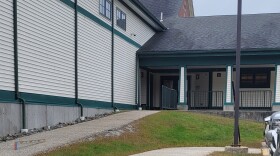
-
New data from the U.S. Education Department show the extent of international gifts and contracts to colleges and universities.
-
New Hampshire lawmakers heading into the State House to hear the governor’s speech Thursday were met with young people advocating for a broad range of issues, from affordable housing, college tuition, and child care to gun rights and climate protections.
-
A few hundred students marched from Concord High School to the State House on Thursday to protest federal immigration enforcement that has left two American citizens dead and many others detained.
-
A federal judge has overturned cuts to funding for NH’s TRIO career and college support program, which the Trump administration said contained illegal equity initiatives.
-
School officials in Manchester received reports of potential ICE activity in the city on Wednesday and Thursday.
-
Several schools abruptly halted broadcasting school events in December, after the state Department of Education said New Hampshire’s parental rights law forbids recording students without parental permission.
-
NAMI New Hampshire and the Concord and Manchester school districts received letters late Tuesday announcing the termination of their grants. A White House official said less than 24 hours later that those cuts would be reversed.
-
The U.S. Department of Education's civil rights office told the district the wheelchair ramp at an elementary school violated disability rights protections. The district has designed a new one that will cost about $12,000.
-
The college is in the midst of budget cuts imposed by the state that triggered staff layoffs and buyouts. In response, 18 people with connections to Keene State recently launched an effort to support the college and its liberal arts programs.
-
The state education department warned school districts they cannot record audio or video of students without written parental permission. That’s left schools wondering how they can air school events.
-
The Trump administration’s move to freeze federal child care payments to some states has alarmed local child care providers and families. State officials say they have received no indication payments are at risk.
-
New Hampshire courts have ruled the state is spending too little to meet its constitutional duty to provide an “adequate” education for all students. Both parties will try to increase state spending this year, though Democrats have proposed spending more than Republicans.
















